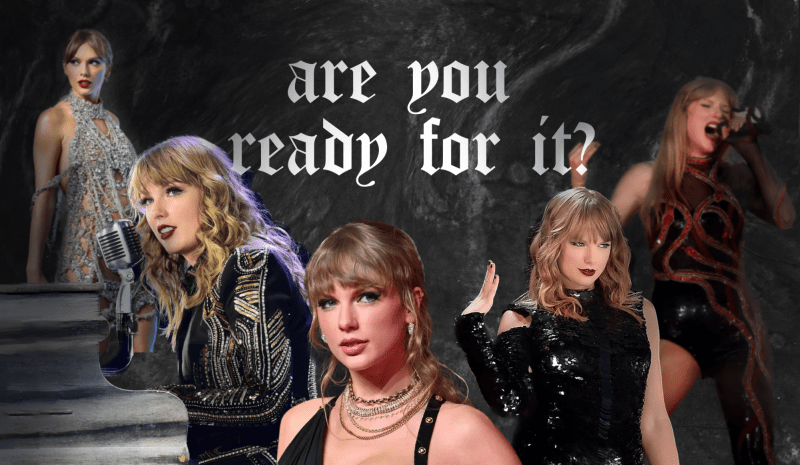“My name is Taylor, and I was born in 1989.”
Played at the opening of Taylor Swift’s Eras Tour, this line will also be the Week 1 theme of a new Stanford class, taught this spring by COLLEGE and history lecturer Theresa Iker Ph.D. ’23.
The class, “HISTORY 262A: Taylor Swift and Millennial America,” examines the socio-historical context around Swift’s upbringing and rise to fame. During Week 1, students will study how events in 1989, such as the fall of the Berlin Wall, shaped the global economy.
“We will look at the world that made Taylor Swift, and by the end of the class we will also look at the world that she is making,” Iker said.
Iker has had a “Taylor file” full of ideas for a study on Swift for years. It was not until a few months ago that she decided to propose “HISTORY 262A” to the department.
“In the last year or so, she has attained even a new level of superstardom,” Iker said, citing Swift’s impact on politics, culture and the economy. “How does this happen?”
Iker designed the class to understand Swift’s rise by studying recent history, from the 1990s through the 2010s. Materials for each class session include readings on a historic episode paired with a few of Swift’s songs emblematic of the time period.
“HISTORY 262A” will be one of four new classes this year to discuss Swift, her work and her cultural significance. Three of the four will be offered this Spring, and one will be offered this Summer.
These four new courses join a myriad of pop culture-inspired classes that blossomed on university campuses in the post-pandemic years. These classes, offered at Harvard, New York University and beyond, discuss topics ranging from Swift’s lyrics to her role in the feminist movement. Educators drew connections between Swift’s songs and their research and many wanted to make class materials more relevant to students by bringing Swift into seminars.
The pandemic push
Lockdown had dramatic effects on education: In California, university and community college enrollment dropped 7% between 2019 and 2023. Nationwide, more students became chronically absent from schools.
More than ever, professors sense a need to draw students into classes. According to French and Italian professor Marisa Galvez Ph.D. ’07, this means “meeting students halfway” — finding a middle ground between professors’ research and students’ interests.
This spring, Galvez will co-teach “COMPLIT 163: A Brief History of Now: Song and Poetry from Sappho to Taylor Swift” (also cross-listed as FRENCH 163) with third-year comparative literature Ph.D. student Harry Carter.
Galvez attributed this new collaborative learning model to students’ desire for community after pandemic lockdowns. Current college students spent at least a year taking online classes after March 2020. Now that in-person classes have resumed, students are “hungry” for opportunities in which they can “be present together,” whether in a classroom or concert stadium, Galvez said.
Galvez and Carter hope to incorporate these experiences into “COMPLIT 163.” Students will listen to live music and deliver presentations on chosen songs that test out learned theories, such as the concept of “now.”
The pandemic may have given rise to these new experimental classes in more ways than one. Massive national and global changes since the onset of the COVID-19 pandemic cultivated a public appetite for understanding the recent past, Iker said.
“During the pandemic and in the wake of the murder of George Floyd, there has been interest in understanding, ‘How did we get here?’” Iker said. “What historical trends informed these moments that are so overwhelming?”
This interest enabled the genesis of new classes like “HISTORY 1: The History of 2023.” It also encourages academics to turn their attention to recent pop culture phenomena such as Taylor Swift’s influence.
Swift: The poet or the sensation?
When Carter read Sappho’s “Midnight Poem” fragment 168B, he was immediately reminded of Swift’s “the last great american dynasty.”
Sappho opens the poem with picturesque descriptions of the moon before bringing up her own solitude. In “the last great american dynasty,” Swift narrates the story of Rebekah Harkness, the wife of Standard Oil heir Bill Harkness. She then connects Rebekah’s story to herself through Rebekah’s Holiday House, which Swift now owns.
“What can we learn by putting these things next to each other?” Carter said.
Galvez, who studies medieval lyric poets called troubadours, said she is similarly fascinated by shared themes in song lyrics across time. She said pop music can be an entry point to get students excited about subjects that seem disconnected with the present day.
“The historical world and medieval poetry get more distant from us every generation. It seems like another planet,” Galvez said. “How do you make that other planet more interesting? You have to be more creative in making a connection.”
Ava Jeffs ’26, who will teach “TAPS 89SI: The Last Great American Songwriter: Storytelling with Taylor Swift through the Eras” this Spring, wanted to analyze Swift’s discography “one era at a time” and “bring modern mediums of storytelling to the forefront of discussions in higher education.”
For other educators, like Iker and fourth-year ethnomusicology Ph.D. student Matthew Gilbert, it is the popularity of Swift and her music that warrants close analysis.
Gilbert will teach “MUSIC 20AX: The Singer-Songwriter & American Popular Culture” this summer. The class will explore the rise of singer-songwriters such as Bob Dylan, Joni Mitchell and Lhasa de Sela, ending with a deep-dive into Swift, capitalism and productivity.
Swift’s songs are personal, yet they resonate with listeners nationwide. According to Gilbert, her songs embody a tension at the heart of American music — whether it should tell personal stories or represent the collective experience.
“When something is that important to society, it is our responsibility to understand why,” Gilbert said on Swift’s music. “But if you are treating her like a poet, you are doing it wrong.”
